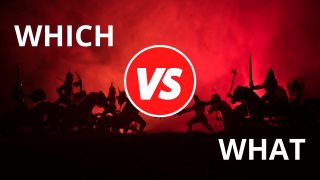Who could ever forget the movie Leap Year back in 2010? The endless greens of the Irish meadows, the story behind Ballycarbery Castle, and the train wreck of mishaps that Anna Brady had to endure. One of the most unforgettable scenes in the film was when a group of lads offered desperate Anna a lift …
English
Some proverbs confer wisdom onto us. They tell us how we should conduct ourselves and how the world works. After all, fortune favors the brave, and a stitch in time saves nine. On the other hand, other proverbs warn us from making mistakes, mistakes that are part and parcel of being human. For example, we …
What makes a certain expression or proverb immortal? Why do some sayings get passed down from generation to generation, even crossing cultural and linguistic boundaries, while other sayings rarely make it past a single generation and are quickly forgotten, only to be remembered by curious historians who ask themselves how humanity could have ever used …
When and how do we use “whether”? Is the “or not” in “whether or not” even necessary? Although it seems a bit odd, it is natural to ask these tricky questions occasionally. Given all the deceptive rules in any language’s grammar, perhaps only Mr. Chomsky isn’t having troubles like this. Well, there’s no need to …
An integral part of becoming fluent in any language is learning their idiomatic expressions. After all, if you want to have a full-on conversation with a native English speaker, they are bound to use expressions like “give someone the cold shoulder” and “go on a wild goose chase.” And, unless you know what these expressions …
Some proverbs and expressions become so popular that they end up being part and parcel of the language, adorning it and adding more flavor to conversations, sort of like flowers blossoming on a branching tree. For instance, a couple of years ago, I was at a restaurant with a friend of mine when an old …
Through the advent of technology, emails have replaced written letters and stressful face-to-face interactions. In correspondence, a sign-off message is an important politeness marker which serves as a closing cue to end an interaction. Interestingly, these all-too-common sign-off messages may imply a variety of tones and meaning to the audience. To shed light on these …
Making a choice between two closely-related words can be sometimes tricky, not to mention taxing. Although it feels quite uncanny to get confused about a language that we seem to know by heart, linguistic doubts are indeed natural. So, why don’t we take a closer look between “which” and “what” to find out the nuances …
Sometimes, we get caught up with deciding which expressions should be used in certain conversations. We could get nervous when talking with strangers which could lead to unintentional cringeworthy remarks called “faux pas.” In business-related discussions, things could get awry when we misconvey our thoughts, which is quite compromising. So now, let me lay down …









